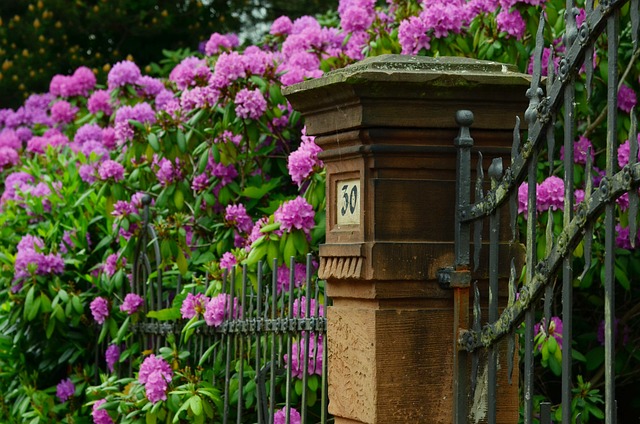New Bedford, MA, is leading a green revolution in fencing with its embrace of eco-friendly materials. This coastal city understands the environmental impact of traditional fencing and is opting for sustainable alternatives that benefit both local ecosystems and communities. From recycled plastic to organic plant barriers, these innovative solutions offer aesthetics, durability, and an opportunity to mitigate climate change. This article explores New Bedford’s shift towards a greener fence culture, delving into the diverse eco-friendly materials available and their profound advantages.
- New Bedford's Green Fence Revolution
- Eco-Friendly Materials: Sustainable Options
- Benefits for Local Ecosystems and Communities
- Choosing the Right Eco-Conscious Fence
New Bedford's Green Fence Revolution
New Bedford, MA, has been at the forefront of a green revolution when it comes to fencing materials. The city’s residents and local authorities have increasingly embraced eco-friendly options, driving a significant shift in the landscape of outdoor barriers. This change is not just about aesthetics; it reflects a deep commitment to sustainability and environmental preservation.
The “green fence” movement in New Bedford has seen traditional materials like wood and metal give way to innovative alternatives such as recycled plastic, bamboo, and plant-based composites. These new options offer numerous benefits, including reduced carbon footprints, minimal maintenance requirements, and enhanced aesthetic appeal with natural, earthy tones. Moreover, they provide an effective solution to the challenges posed by harsh local climates, ensuring that fences stand the test of time while keeping New Bedford’s neighborhoods vibrant and eco-conscious.
Eco-Friendly Materials: Sustainable Options
New Bedford, MA residents now have more sustainable options when it comes to fencing materials thanks to eco-friendly alternatives that offer both aesthetic appeal and environmental benefits. These materials, ranging from recycled plastics to organic plant fibers, provide a greener solution compared to traditional wood or metal fencing.
The use of eco-friendly fencing materials promotes sustainability by reducing waste, conserving natural resources, and minimizing the carbon footprint associated with production. For instance, recycled plastic fences are made from reclaimed materials, diverting them from landfills and lowering the demand for new plastic production. This, in turn, helps preserve green spaces and reduces pollution. Additionally, organic plant fibers like bamboo or hemp offer a renewable resource that grows quickly and is biodegradable, ensuring minimal environmental impact over time.
Benefits for Local Ecosystems and Communities
Eco-friendly fencing materials offer numerous benefits for both local ecosystems and communities in New Bedford, MA. These sustainable alternatives to traditional wood or metal fences reduce environmental impact by minimizing waste, preserving natural resources, and promoting biodiversity. For instance, recycled plastic and metal fences are durable and long-lasting, reducing the need for frequent replacements.
Moreover, eco-friendly fencing can enhance urban green spaces and beautify neighborhoods. Native plant-based barriers provide habitats for local wildlife, support pollinator populations, and improve overall ecosystem health. They also contribute to a more aesthetically pleasing environment, increasing property values and fostering a sense of community pride. By choosing these materials, New Bedford residents can make a positive impact on their surroundings while enjoying the benefits of clean, green spaces.
Choosing the Right Eco-Conscious Fence
When considering an eco-friendly fence for your New Bedford, MA property, it’s crucial to weigh the unique benefits and drawbacks of each material available. Opting for sustainable options not only contributes to a greener environment but also offers aesthetic appeal and long-term durability. Some popular choices include recycled plastic, treated wood from certified sustainable sources, and bamboo—each with its own strengths. Recycled plastic fences are durable, low-maintenance, and cost-effective, ideal for areas prone to harsh weather conditions. Treated wood, on the other hand, provides a classic look while minimizing the use of chemicals if sourced responsibly. Bamboo fencing is a rapidly renewable resource known for its strength and versatility, making it an excellent choice for both aesthetic and functional purposes.
The key to choosing the right eco-conscious fence lies in understanding your specific needs, climate, budget, and personal preferences. Researching local regulations regarding fence materials is also essential. Consider factors like lifespan, installation ease, and potential impact on local ecosystems when making a decision. With careful consideration, you can select an eco-friendly fencing material that aligns with both your environmental values and practical requirements.
